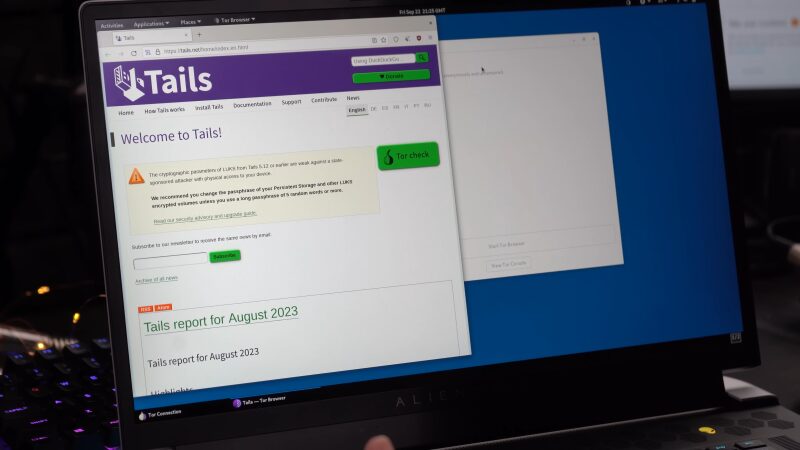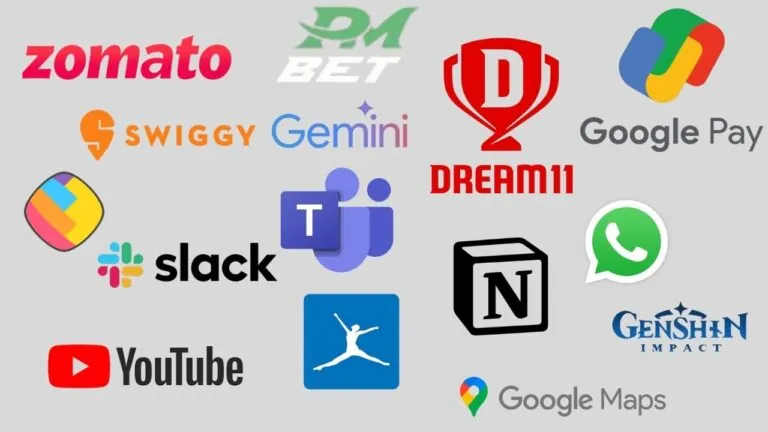Every time I think about online anonymity, I can’t help but wonder just how much of our digital lives are truly private. Spoiler alert: complete anonymity on the internet is practically impossible.
There are digital breadcrumbs we leave behind every time we go online, no matter what tools we use.
The good news? You can still make it incredibly hard for anyone to track or monitor you, and I’m here to walk you through how to get as close as possible to being anonymous online.
Table of Contents
ToggleThe Tools You Need for Better Online Privacy
You might not be able to go fully off the grid, but there are plenty of ways to strengthen your privacy. Here are the best tools you can use:
1. Tor Browser

Tor is one of the most reliable tools for anonymous browsing. Your data is routed through multiple encrypted nodes, hiding your IP address. The result? Your activity becomes extremely difficult to trace. However, it’s not perfect.
If you’re being targeted by advanced adversaries like government agencies, they can still monitor Tor’s entry and exit nodes to see who’s using the network and when.
Tor is ideal for people looking to stay as anonymous as possible—journalists, activists, or just regular folks wanting more privacy. Keep in mind, though, that using Tor can slow down your internet connection, so it’s a trade-off between privacy and speed.
Using Tor can greatly increase your online privacy by routing your traffic through a series of encrypted nodes. If you’re looking for additional ways to enhance anonymity, consider using Datacenter proxies, which offer fast speeds and extra layers of protection by masking your IP address.
These proxies are particularly useful for bypassing geo-restrictions and managing multiple accounts, although they aren’t always foolproof and may still be blocked by certain websites. Combining both Tor and datacenter proxies can further improve your privacy efforts.
2. Virtual Private Networks (VPNs)
A VPN is a go-to tool for protecting your data and privacy. It reroutes your internet traffic through a remote server, making your IP address appear to be from a different location.
Your traffic is also encrypted, which adds another layer of security. But don’t confuse VPNs with complete anonymity.
Some VPN providers keep logs of your activity, and if they’re located in a country with weak privacy laws, they could be forced to hand over those logs to authorities.
To maximize your privacy, look for a VPN provider that doesn’t keep logs and operates out of a privacy-friendly country (Switzerland and the British Virgin Islands are good options).
3. Privacy-Focused Operating Systems
For those needing an extra layer of security, consider switching to a privacy-centric operating system like Tails or Whonix.
These operating systems are designed to protect users’ anonymity by running from a USB stick (Tails) or routing all traffic through Tor (Whonix).
Tails, for instance, don’t leave any traces on the host computer and is ideal for people who require anonymity on the go. Whonix takes it a step further, separating your internet activities into two virtual machines to reduce the chance of being traced.
4. Anonymous Cryptocurrencies
#IntelBrief: ISK has moved away from Bitcoin and Tether and is increasingly soliciting donations in Monero, a privacy-focused cryptocurrency designed to ensure transaction untraceability, through its flagship Voice of Khurasan magazine. https://t.co/FjnBnxDJeo
— The Soufan Center (@TheSoufanCenter) October 16, 2024
Not all cryptocurrencies are created equal. While Bitcoin is often thought of as anonymous, it’s only pseudonymous. Transactions are recorded on a public ledger, and if someone connects your wallet address to your identity, they can trace your entire transaction history.
For better anonymity, consider using privacy-focused cryptocurrencies like Monero. Monero hides the sender, recipient, and transaction amounts, making it much harder to trace compared to Bitcoin.
5. Burner Emails and Phone Numbers

If you want to keep your real identity off the web, consider using disposable email addresses and phone numbers when signing up for services. ProtonMail offers encrypted email services that don’t store your data. Temporary email services like 10 Minute Mail can be used to create quick, throwaway accounts.
Pair these with burner phone numbers for a nearly anonymous experience. You can use services like Google Voice for this or buy prepaid SIM cards for an extra layer of anonymity.
Privacy Practices That Boost Anonymity
Using the right tools is just part of the equation. How you navigate the web matters too. Here are some important habits that can help protect your privacy:
- Ditch Google (and mainstream search engines): Google is a data collection giant. Switch to privacy-first search engines like DuckDuckGo or Startpage. They don’t track your searches, helping you avoid targeted ads and invasive tracking.
- Disable JavaScript: Many websites use JavaScript to collect data on users’ browsing behavior. While blocking JavaScript can prevent some websites from functioning correctly, using extensions like NoScript or uMatrix allows you to selectively block harmful scripts.
- Avoid “Private” Browsing: Using incognito or private mode in browsers only stops your device from storing your history. It doesn’t stop websites, ISPs, or governments from tracking you. Always combine private browsing with VPNs or Tor for true privacy.
- Don’t Click on Suspicious Links: Phishing attacks are real, and clicking on malicious links can expose your personal data. Be cautious about what you click, especially if it comes from an unknown source.
Why Is True Anonymity So Hard to Achieve?

Once you’re connected to the internet, you’re automatically creating a digital trail. Let’s break that down.
The moment you visit a website or open an app, there are multiple entities keeping an eye on you: your internet service provider (ISP), websites, advertisers, even governments.
They collect information like your IP address, browsing history, and sometimes even your location. That’s happening all the time.
You might be thinking, “What about privacy tools like VPNs and Tor?” Well, while they can shield a lot of your information, even these tools don’t make you invisible. VPNs reroute your traffic and hide your IP, but they still pass information through their servers.
And if your VPN provider keeps logs, that info could eventually be traced back to you. Tor is more advanced, encrypting your traffic and bouncing it through multiple nodes worldwide. But even that can be vulnerable, especially if someone’s monitoring the entry and exit points.
Plus, most services and platforms require some of your personal data just to function. Ever tried signing up for a social media account or an email without giving away your phone number or email? It’s hard! Even if you use a privacy-friendly service, your data is still at risk of being stored, hacked, or leaked.
The Government’s Role in Limiting Anonymity

One of the biggest barriers to true anonymity is government oversight. In countries like China, Russia, or Iran, internet censorship is widespread, and tools like VPNs or Tor are either banned or heavily monitored. If you get caught using them, the consequences can be severe.
Even in countries with stronger privacy laws, like many in the European Union, governments have ways of accessing data when needed. Surveillance programs and legal demands for data make it difficult to achieve total anonymity.
Countries like the United States, for instance, have a history of pressuring companies to release user data, especially when it comes to law enforcement and national security matters.
That said, it’s still possible to limit your exposure by choosing privacy-friendly services and sticking to strong encryption.
Final Thoughts
While true anonymity is out of reach for most of us, you can come pretty close by using the right tools and adopting smart online habits.
It doesn’t matter if it’s using Tor, a VPN, burner accounts, or privacy-focused cryptocurrencies, the key is combining multiple layers of privacy tools to shield yourself from being easily tracked.
But remember, there’s always going to be some risk. No tool is 100% foolproof. It’s more about reducing your exposure and being mindful of how much data you’re sharing online. Every little step you take gets you one step closer to staying private in a world that’s constantly watching.










